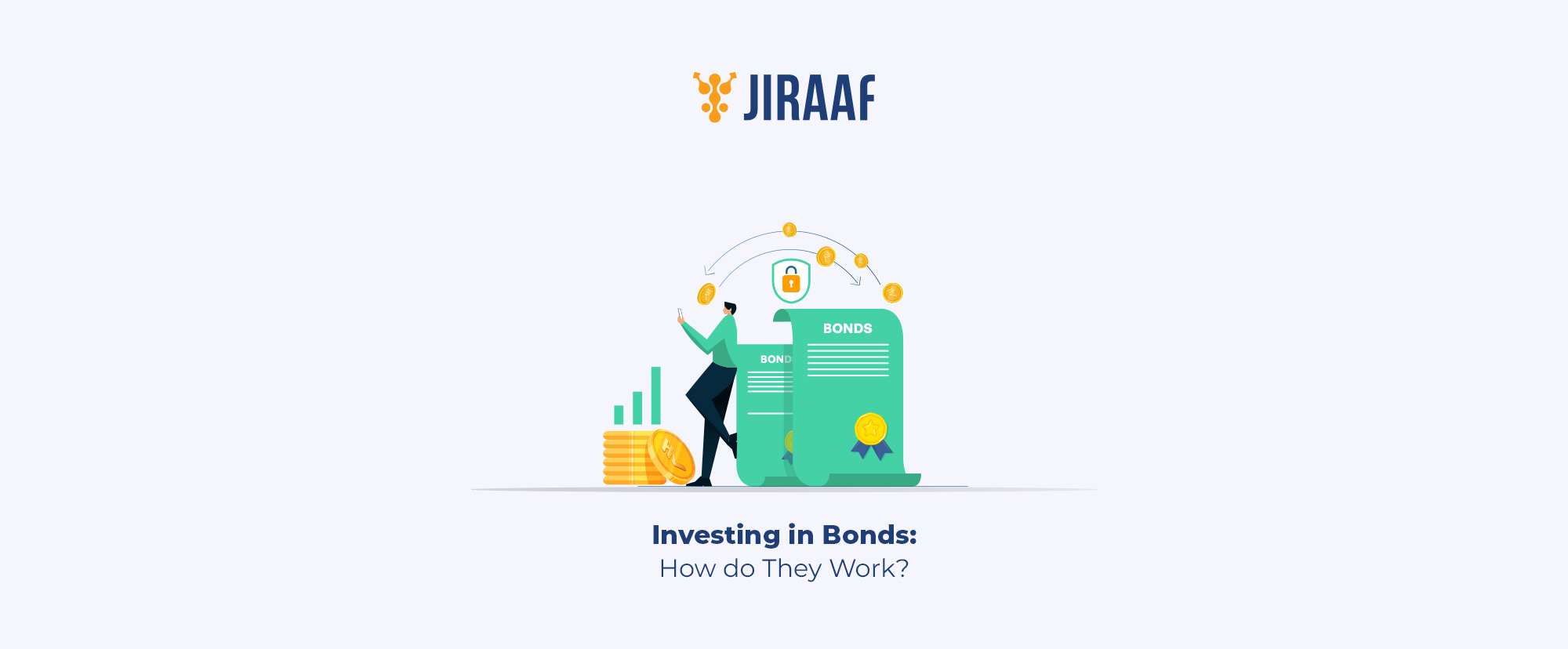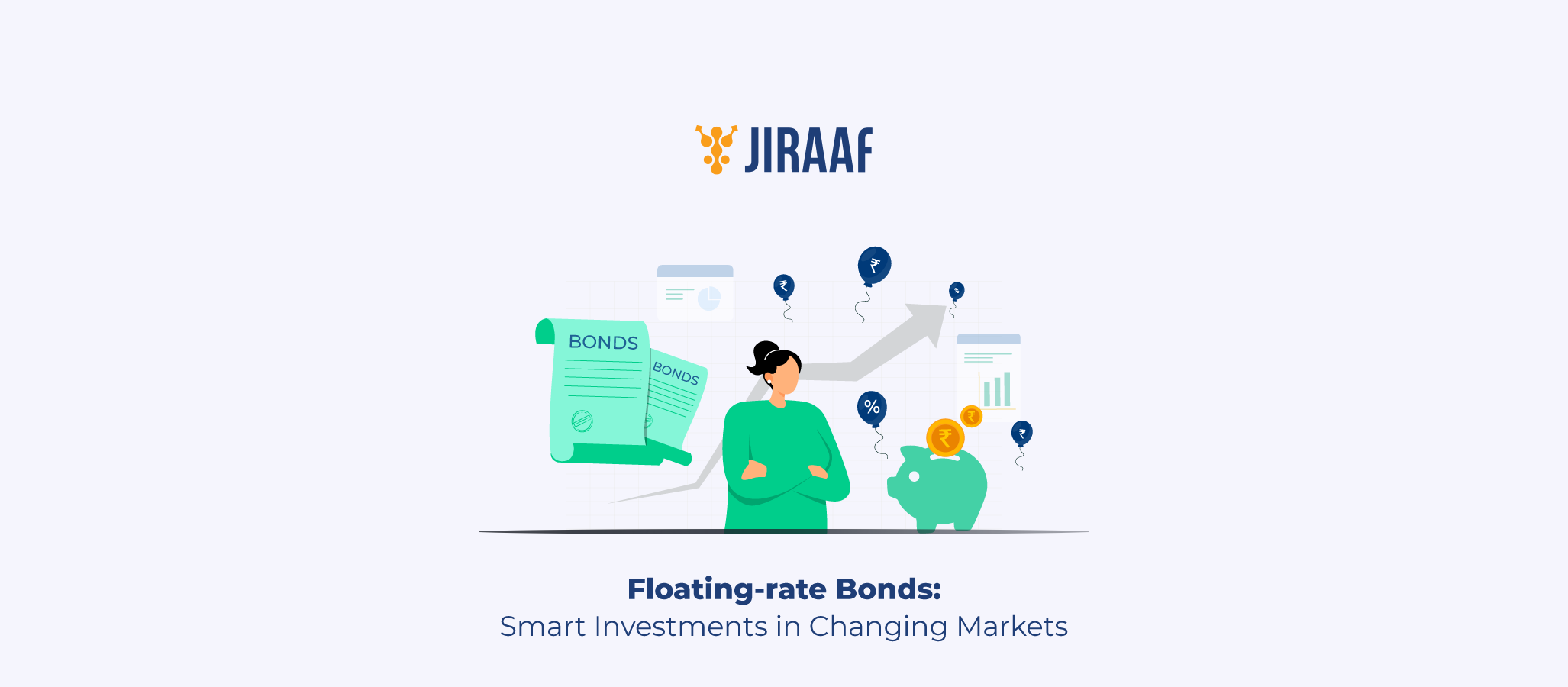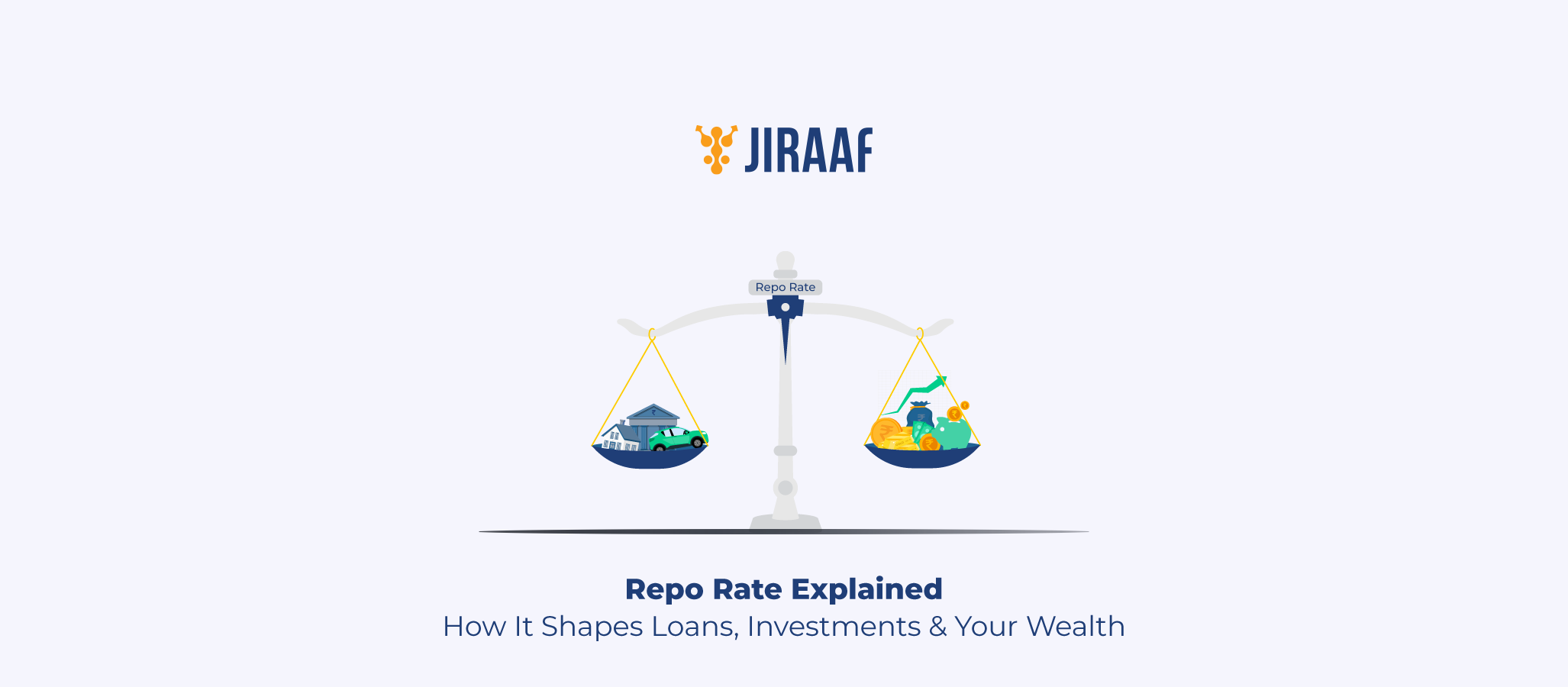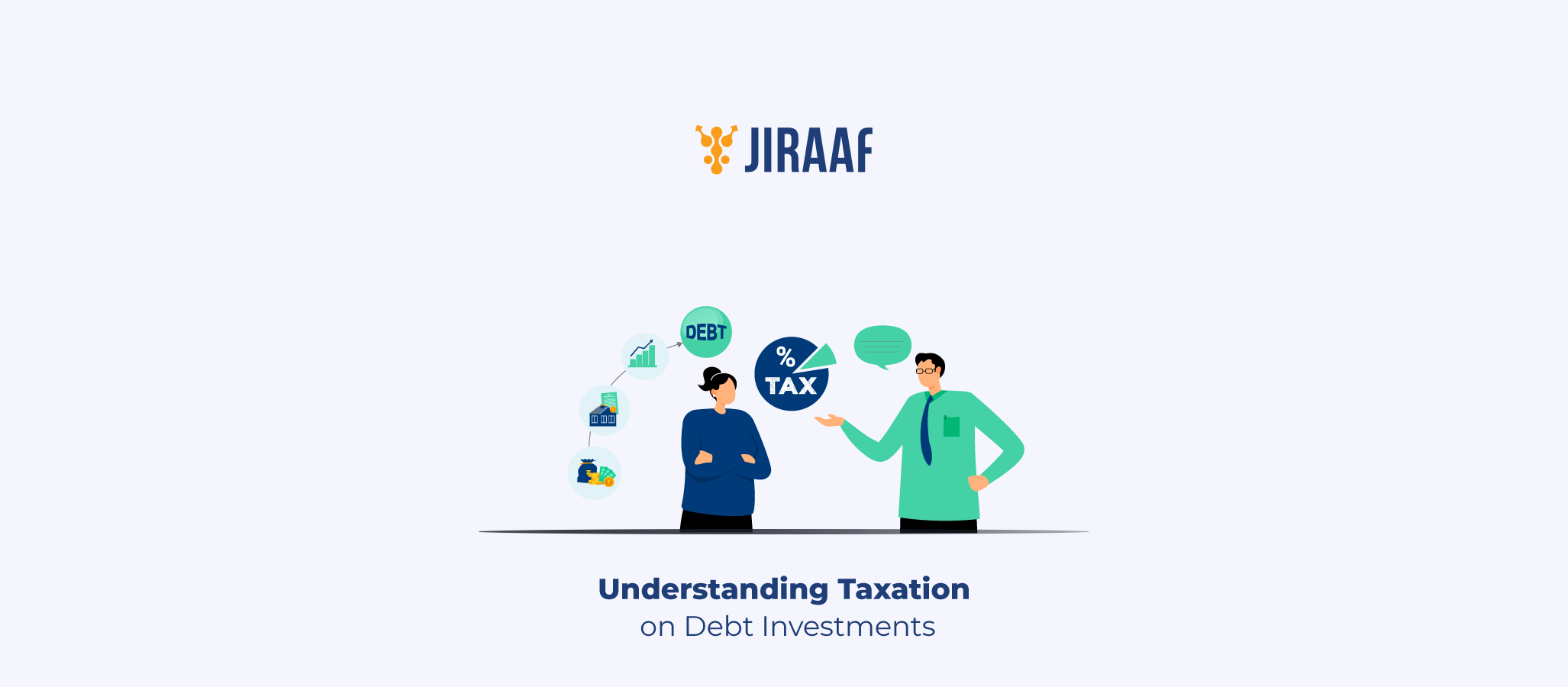If equities account for 70% of your personal finance portfolio, bonds need to be accounting for the rest 30%. Bonds play an important role in giving investors a way to earn income while mitigating volatility. They’re straightforward in concept, but with little information breaking it down to the basics, it’s easy to feel lost if you’re new to investing. This guide walks you through all the details about bonds investing, so you can understand what bonds are, why they matter, and how to get started with them.
What is a Bond?
A bond is like a loan you give to a company, government, or organization which helps them raise money for important projects and keep the cashflow going. When you buy a bond, the issuer promises to pay you back the full amount you lent (the principal) on a specific date, called the maturity date. On top of the principal amount, you get regular interest, known as coupons, at a set rate during the life of the bond. It’s a simple way to earn steady returns while helping fund various projects or initiatives.
Who Issues Bonds?
Bonds are issued by various entities to raise funds for large-scale projects or operations:
- Governments: To fund infrastructure, public services, or to manage fiscal deficits
- Public Sector Undertakings (PSUs): For development projects or operational needs
- Corporations: To expand businesses, finance new ventures, or fund working capital requirements
- Municipalities: To develop urban infrastructure
Understanding the Bond Market
The bond market, also known as the fixed-income market, is a platform where bonds are bought and sold. It allows issuers to raise funds while giving investors a stable income source. This market plays a very important role in funding projects, keeping the financial system running smoothly, and supporting economic growth.
Types of Bonds
Bonds are categorized as listed and unlisted bonds and are regulated by SEBI. Listed bonds are traded on stock exchanges BSE and NSE, making them easier to buy and sell. Unlisted bonds, on the other hand, are usually issued by private organizations and not traded on exchanges, so they’re less accessible but may offer unique investment opportunities. Let’s dive deeper into the types of bonds.
1. Government Bonds:
- Treasury Bonds: Treasury bonds are long-term bonds issued by the Government of India, typically with a maturity of 5, 10, or 20 years. They are considered low-risk and provide fixed interest payments to investors
- Inflation-indexed Bonds (IIBs): These bonds are usually issued by the Government of India where the principal and interest are adjusted for inflation, offering protection against inflation
- Municipal Bonds: Municipal bonds are issued by municipal bodies (e.g., cities, towns) in India to finance urban infrastructure projects. These are often tax-free and provide moderate returns with a moderate level of risk
- State Development Loans (SDLs): The state governments issue these bonds to fund local projects
- Savings Bonds: Savings Bonds are issued by the Government of India to encourage savings among retail investors. These bonds generally offer fixed returns and are low-risk investments
- Government of India Savings Bond (GOI Bonds): Are low-risk bonds aimed at retail investors. They usually come with tenures ranging from 2 to 7 years and offer fixed returns, making them a popular choice for conservative investors
2. Corporate Bonds:
- Investment-grade Bonds: These bonds are issued by financially stable companies with high credit ratings (e.g., AAA, AA, A & BBB) and are considered low-risk investments. They provide regular interest payments and relatively lower yields
- High-Yield Bonds (Junk Bonds): Junk bonds are issued by companies with lower credit ratings (e.g., BB and lower). These bonds offer higher yields due to the higher risk of default
- Convertible Bonds: These bonds can be converted into a predetermined number of shares of the issuing company at specified terms. They offer bondholders the potential for capital appreciation if the company’s stock price rises
- Callable Bonds: Bonds that can be repurchased by the issuer before maturity. This feature is beneficial for issuers when interest rates fall, allowing them to refinance at a lower rate
- Putable Bonds: These bonds give bondholders the option to sell the bonds back to the issuer at a pre-agreed price before the maturity date. This feature gives the investor some protection if interest rates rise
- Zero Coupon Bonds: These bonds are issued at a discount to face value, these bonds do not make periodic interest payments. The investor receives the full-face value upon maturity, and the return is the difference between the issue price and maturity value
- Debentures: Debentures are unsecured corporate bonds that are not backed by collateral but rely on the creditworthiness of the issuing company. Debentures are a common way for Indian companies to raise capital
3. Other Types of Bonds
- Floating Rate Bonds: Bonds with interest rates that adjust periodically based on a reference rate (such as the RBI’s repo rate or the LIBOR). These bonds offer protection against interest rate volatility, which is important in an environment of fluctuating interest rates
- Perpetual Bonds: Bonds that have no maturity date and pay interest indefinitely. They are often issued by banks or financial institutions in India and provide a fixed return to investors for the life of the bond
- Foreign Currency Bonds: These are bonds issued in foreign currencies (e.g., USD, EUR) in India or by Indian companies. These bonds expose investors to currency risk but may offer higher returns due to foreign interest rates
- Municipal Infrastructure Bonds: These bonds are issued by municipal corporations in India to fund infrastructure projects like roads, bridges, and water treatment plants. These bonds may offer tax incentives to encourage investment
- Green Bonds: They are issued by Indian corporations to raise funds specifically for environmentally sustainable projects, such as renewable energy, energy-efficient buildings, or pollution control
How Do Bonds Work?
Bonds are loans made by investors to the issuer (government, company, etc.). In return, the issuer pays regular interest (coupon payments) and returns the principal (face value) at maturity. Bonds have a fixed term and pay a set interest rate.
Understanding the Lifecycle of Bonds
The lifecycle of a bond can be summarized in three key stages:
1. Issuance
- Bonds are created and sold by issuers, such as governments or corporations, to raise capital
- At the time of their issuance, key terms such as the interest rate, maturity date, and face value are detailed in a bond indenture
- Once issued, the bond can be sold in the primary market to investors, who purchase the bonds directly from the issuer or through underwriting
2. Holding Period
- After investing in a bond, investors earn regular interest payments (coupons) from the issuer till the time of maturity
- Once issued, the bond can be sold in the primary market to investors, who purchase the bonds directly from the issuer or through underwriting
3. Maturity/Redemption
- Upon maturity, the issuer repays the full-face value (also known as the principal or par value) of the bond to the bondholder.
- If the bond is callable, the issuer has the option to redeem (buy back) the bond before its maturity date, typically if interest rates fall, allowing the issuer to refinance at a lower cost.
Features of Bonds
Bonds are a versatile investment vehicle that can serve different financial goals, from steady income to capital preservation, making them a key component in diversified portfolios.
Key Features of Bonds:
- Face Value (Par Value): The face value is the amount the bondholder will receive when the bond matures, which is also used to calculate interest payments
- Coupon Rate (Interest Rate): The coupon rate refers to the interest that the bond issuer pays to the bondholder, usually expressed as a percentage of the face value. Payments are typically semi-annual but can be annual or quarterly
- Maturity Date: The maturity date specifies when the bondholder will be repaid the face value. Bonds can be short-term (less than 1 year), medium-term (1-10 years), or long-term (over 10 years)
- Issuer: Bonds are issued by entities such as governments, corporations, or municipalities. The issuer’s creditworthiness affects the bond’s risk level.
- Yield: Yield is the return earned on a bond, considering the bond’s current market price, coupon rate, and maturity. Yields can fluctuate based on market conditions
- Credit Rating: Rating agencies (e.g., CRISIL, CARE, ICRA) assign ratings based on the issuer’s creditworthiness. Higher-rated bonds (e.g., AAA, AA) are safer but offer lower yields
- Market Price: Bonds can be traded in the secondary market, and their prices fluctuate depending on interest rates and issuer credit quality. When interest rates rise, bond prices typically decrease
- Callability: Some bonds are callable, meaning the issuer can repay them before maturity. Callable bonds usually offer higher interest rates to compensate for the risk of early repayment
Bond Ratings and What They Mean:
Bond ratings assess the creditworthiness of the issuer and the likelihood of timely repayment of interest and principal. They are assigned by credit rating agencies like CRISIL, CARE, ICRA, and SMREA with ratings ranging from high-grade (AAA) to junk or speculative grade (BB or lower). Higher ratings indicate lower risk, while lower ratings signal higher risk of default. Investors use these ratings to gauge the risk level associated with a bond.
Advantages of Investing in Bonds
- Diversification: Bonds are a good way of diversifying the portfolio and protecting capital for those with low-risk appetites
- Low risk: The risk associated with bonds in comparison to equities is lower. Most of the bonds are secured in nature and are backed by some form of collateral
- Regular receipts: Bonds provide a fixed stream of income with regular interest payments usually annually or semiannually
- Low default: Secured Bonds from good rated companies have lower chances of default and are generally secured by underlying collateral giving extra protection to investors. Government bonds are almost risk free as they come with sovereign guarantee of the government.
- Predictable Returns: Bonds offer predictable returns in the form of regular interest payments (coupons). These payments are set at the time of purchase and continue until maturity. This predictability helps investors plan income
- Lower Risk Options for Conservative Investors: Bonds, especially government and investment-grade corporate bonds, are considered low-risk investments
The primary and secondary bond markets of India are massive and as of January 2023 aggregate to about $1.8 trillion.
Risks in Bond Investing:
- Interest Rate Risk: Bond values tend to decline when interest rates rise, which can impact the market price of the bond
- Credit Risk: The possibility that the bond issuer may default on interest payments or the principal, particularly with lower-rated corporate bonds
- Inflation Risk: Fixed interest payments can lose purchasing power during periods of high inflation, eroding the real return on the bond
- Liquidity Risk: Some bonds may be difficult to sell quickly without taking a price hit, especially in the case of unlisted or less-traded bonds
Taxation of Bonds in India:
The taxation of bonds depends on the type of bond and the holding period. Here’s a simple breakdown:
- Interest Income: Interest earned on bonds is taxable as per the individual’s income tax slab. For example, if you earn ₹10,000 as interest from a bond, it will be added to your total income and taxed based on your slab rate
- Capital Gains Tax: If you sell the bond before maturity, the tax on capital gains depends on how long you’ve held the bond:
- Short-term Capital Gains (STCG): If you sell the bond within 3 years of purchase, The rate will be 15% for transfers completed on or before July 22, 2024. Starting from July 23, 2024, the rate is 20%
- Long-term Capital Gains (LTCG): For sales made on or after 23rd July 2024, Long-Term Capital Gains (LTCG) will be taxed at a flat rate of 12.5%, without the indexation benefit. For sales made on or before 22nd July 2024, LTCG is taxed at a flat rate of 20% with the indexation benefit
How to Invest in Bonds?
Many people find investing in bonds confusing, so here’s a simple guide to buying bonds online.
When an organization wants to raise funds for the first time, it issues listed bonds in the primary market. If you’re looking to buy or trade bonds that have already been issued, you’ll need to do that in the secondary market.
If you’re certain you want to hold a bond until it matures, you can purchase it directly from the primary market.
Various ways through which bonds can be bought are:
1. NSE goBID – If you want to buy government bonds, treasury bills, or G-secs, visit NSE goBID. Complete your KYC process by submitting documents like your PAN, Aadhaar, demat, and bank details. Once you make the payment, the G-sec units are credited directly to your demat account. Managed by the Government of India, NSE goBID ensures a secure transfer of both funds and data
2. Brokerage Houses – To easily access listed bonds, reach out to your broker and ask about active or upcoming bond issues. Platforms like Zerodha, Upstox, AngelBroking, and Groww make it simple to invest in highly rated PSU and corporate bonds
3. Online Platforms – Many online platforms let you open a free trading account and invest in listed bonds with as little as ₹1,000. These platforms provide access to government securities, corporate bonds, and MLDs, with detailed offer documents and ratings. Popular options include indiabonds.com and GoldenPi
4. RBI Retail Direct – The RBI Retail Direct scheme allows you to buy government securities directly by opening a ‘Retail Direct Gilt (RDG)’ account with the RBI. Through this account, you can purchase T-Bills, Sovereign Gold Bonds, and bonds from the primary market. On the due dates, your bank account is credited with the interest and maturity amounts
Who Should Invest in Bonds?
Bonds are suitable for:
- Conservative Investors: Those prioritizing safety over high returns, as bonds offer lower risk.
- Income Seekers: Investors wanting regular, stable income through interest payments.
- Risk-Averse Investors: People who prefer less volatile options compared to stocks.
- Retirees or Near-Retirees: Those seeking capital preservation and steady income in retirement.
- Diversifiers: Investors looking to balance risk by adding stability to a stock-heavy portfolio.
- Long-Term Investors: Individuals focused on preserving capital with steady returns over time.
Bonds Vs. Other Investments:
Here’s how bonds stack up against other popular investment options:
- Bonds are loans to an entity with fixed returns
- Equities are ownership in a company with potential for growth but higher risk
- Bonds are secured debt, typically lower risk
- Debentures are unsecured debt, higher risk but often higher returns
- Bonds can be traded and may offer higher returns
- FDs are bank deposits with fixed returns but less flexibility
Bonds vs Mutual Funds
- Bonds provide stable, fixed income
- Mutual Funds offer diversification but with variable returns
Closing Thoughts: What is a Bond
Diversify your portfolio by investing in different investment avenues including bonds. Bonds are considered a safe haven for investors due to their low-risk nature compared to equity products, and their ability to preserve capital and generate regular income. In the event of a bond default due to the borrower’s inability to pay back the investors, bondholders, who are creditors of the company, have a higher priority compared to equity shareholders. For all the right reasons, buy bonds!
Frequently Asked Questions:
How to Buy and Sell Bonds?
To Buy Bonds:
- Use a broker, online brokerage, or buy directly from government or corporate issuers if available
- Pay the bond’s face value or current market price
To Sell Bonds:
- Sell in the secondary market through a broker or trading platform
- Bond prices fluctuate with interest rates and demand; sell at a profit if rates have dropped, or potentially at a loss if rates have risen
How Often Do Bonds Pay Interest?
Most bonds pay interest semi-annually (every six months), but some pay quarterly, annually, or even at maturity (zero-coupon bonds).
Can Bonds Lose Value?
Yes, bonds can lose value if sold before maturity, especially if interest rates rise, or if the issuer’s credit rating declines.
What Factors Affect Bond Prices?
- Interest Rates: When rates rise, bond prices fall, and vice versa
- Credit Rating: Downgrades to an issuer’s credit rating can lower bond prices
- Market Demand: High demand can push prices up, while low demand can push them down
Why are Bonds Known as Fixed Income Investments?
Bonds are called fixed income because they provide regular, predictable interest payments, offering steady income to investors.
Discover fixed income investments with Jiraaf, a SEBI registered online bonds platform that educates and brings access to a wide array of bonds. Sign up today to explore diversified fixed income investment opportunities to support your goal based wealth creation journey. Start investing!




